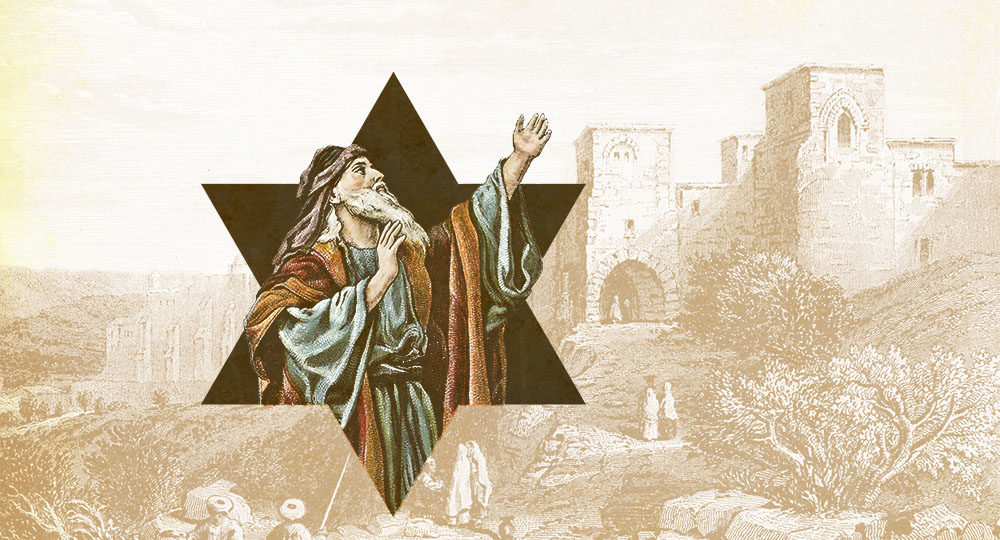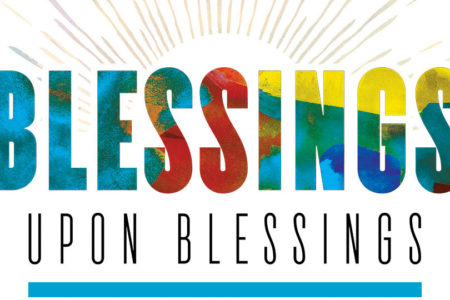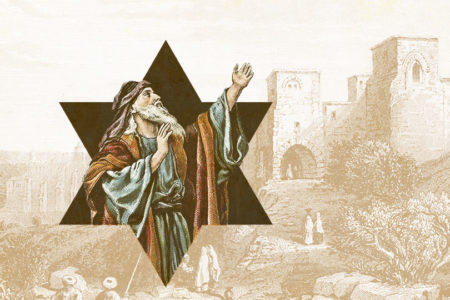Isaiah’s Good News Isaiah 61
A look at three specific blessings in Israel’s future.
You owe no taxes.
You’ve fulfilled all your graduation requirements.
Your biopsy was negative.
Good news comes in all shapes and sizes, and when it arrives—particularly in the midst of trying times—it is usually like the soothing balm of Gilead. The words of Isaiah 61 may have affected the Israelites of the prophet Isaiah’s day the same way.
SURVEY OF ISAIAH
Take a look at the whole outline of this prophetic book in this Survey of Isaiah Poster.
After 39 chapters of condemnation and impending judgment, the remainder of the book of Isaiah presents good news, encouraging the Jewish people that their God will send them a Redeemer and exalt them, as He promised.
A commentator has titled these chapters Redemption Promised: Israel’s Deliverance (40—48), Redemption Provided: Israel’s Deliverer (49—57), and Redemption Realized: Israel’s Glorious Future (58—66).1 In the middle of this final section, Israel receives the good news of its glorious future: the good news of personal release, national redemption, and divine righteousness.
Good News of Personal Release
Claiming the anointing of the Lord, the prophet2 (see “Identity Check,”) announced good news for Israel’s people, who were poor, brokenhearted captives and prisoners:
The Spirit of the Lord God is upon me; because the LORD hath anointed me to preach good tidings unto the meek; he hath sent me to bind up the brokenhearted, to proclaim liberty to the captives, and the opening of the prison to them that are bound; to proclaim the acceptable year of the LORD, and the day of vengeance of our God; to comfort all that mourn; to appoint unto them that mourn in Zion, to give unto them beauty for ashes, the oil of joy for mourning, the garment of praise for the spirit of heaviness; that they might be called trees of righteousness, the planting of the LORD, that he might be glorified (Isa. 61:1–3, KJV).
“The acceptable year of the LORD” (v. 2) will bring Israel good tidings, healing, and liberation—substituting “beauty for ashes” and “the oil of joy” for mourning (v. 3). The focus here is on the joy of personal release from chastening and affliction. Isaiah was delighted to announce this good news to his people, who were oppressed, afflicted, and discouraged because of their circumstances.
The news is coupled with “the day of vengeance of our God”(v. 2). This phrase is not explained but must be understood as a future day of reckoning, when Israel’s enemies will be judged. A great day of release is coming, brought about by the Lord Himself, when the Jewish people will be called “trees of righteousness, the planting of the Lord, that He may be glorified” (v. 3).
Jesus read Isaiah 61:1–2a in the synagogue in Nazareth and declared that His ministry was also a fulfillment (Lk. 4:16–21). This prophecy is an example of the interpretive principle of double fulfillment, where the message applies to the people of the prophet’s day and will also apply to people in the future.3
Jesus, too, was proclaiming the joy of release for those who would accept it. Sadly, most did not, largely because of their familiarity with Him (vv. 22–24). So there remains a day still future, when the primary intent of Isaiah’s prophecy and the great message of personal release will be fulfilled for the people of Israel when their Messiah brings them into His Kingdom.
Good News of National Restoration
Isaiah continued his prophecy, proclaiming a day when Israel will become the most prominent nation on Earth:
And they shall rebuild the old ruins, they shall raise up the former desolations, and they shall repair the ruined cities, the desolations of many generations. Strangers shall stand and feed your flocks, and the sons of the foreigner shall be your plowmen and your vinedressers. But you shall be named the priests of the Lord, they shall call you the servants of our God. You shall eat the riches of the Gentiles, and in their glory you shall boast. Instead of your shame you shall have double honor, and instead of confusion they shall rejoice in their portion. Therefore in their land they shall possess double; everlasting joy shall be theirs. “For I, the Lord, love justice; I hate robbery for burnt offering; I will direct their work in truth, and will make with them an everlasting covenant. Their descendants shall be known among the Gentiles, and their offspring among the people. All who see them shall acknowledge them, that they are the posterity whom the Lord has blessed” (Isa. 61:4–9).
Everything destroyed (both then and in the future) will be restored. The Jewish people’s position as God’s servants will cause foreigners to serve them. It is God’s commitment to justice that prompts Him to fulfill this promise as part of His covenant. Instead of shame, the people of Israel will receive a double portion, possessing their land in great joy. God will make it clear to the nations that they are His people, His offspring, “the posterity whom the Lord has blessed” (v. 9).
Good News of Divine Righteousness
Isaiah then used an analogy of wedding ornaments:
I will rejoice greatly in the Lord, my soul shall be joyful in my God; for He has clothed me with the garments of salvation, He has covered me with the robe of righteousness, as a bridegroom decks himself with ornaments, and as a bride adorns herself with her jewels. For as the earth brings forth its bud, as the garden causes the things that are sown in it to spring forth, so the Lord God will cause righteousness and praise to spring forth before all the nations (vv. 10–11).
The prophet communicated his joy at the thought of what God is going to do. The section follows (and appears to be founded on) the declarations of personal release and national restoration. What God’s people will experience in the Kingdom of righteousness is the overwhelming joy of righteousness itself. This Kingdom will not merely know the absence of war and hate and crime; it will know God’s own righteousness, which will fill the earth through the presence of the Righteous One Himself.
In those days, His righteousness will “spring forth before all the nations” (v. 11) like a garden that causes things to grow. This is the wondrous Kingdom of Messiah, which will be characterized by righteousness, glory, and joy. Jesus will rule the nations with a righteous rod of iron (Ps. 2:9; Rev. 2:27; 19:15), and “the earth will be filled with the knowledge of the glory of the Lord, as the waters cover the sea” (Hab. 2:14). Israel’s hope and joy remain future, but the church’s hope and joy have already begun. The apostle Paul affirmed that believers in Christ have been clothed with Jesus’ righteousness:
But you have not so learned Christ, if indeed you have heard Him and have been taught by Him, as the truth is in Jesus: that you put off, concerning your former conduct, the old man which grows corrupt according to the deceitful lusts, and be renewed in the spirit of your mind, and that you put on [like clothing] the new man which was created according to God, in true righteousness and holiness (Eph. 4:20–24).
The realization that those of us (both Jewish and Gentile) who have been born again have been released from various forms of bondage and have been invested with the very righteousness of God should give us great joy, regardless of the circumstances we may face. And that is good news indeed.
ENDNOTES
- Isaiah Commentaries & Sermons <preceptaustin.org/isaiah_commentaries>.
- Readily acknowledging that many fine commentators understand the Second Person of the Trinity to be this “anointed one” (see “Identity Check”), and recognizing that such an interpretation is indeed possible, I am convinced this message was originally intended for Israel in Isaiah’s day and, therefore, understand Isaiah to be the first anointed one and thus the speaker.
- J. Dwight Pentecost, Things to Come (Grand Rapids, MI: Zondervan, 1964), 46–47.








Thank you for the insight on Isaiah. It truly blessed my soul this morning.